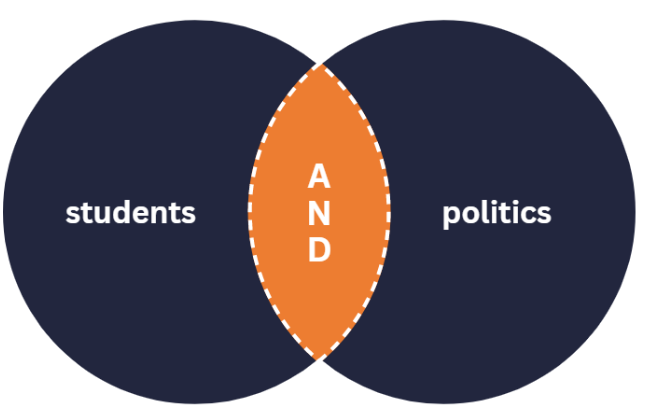Boolean Operators
The Boolean operators of AND, OR, and NOT are used to combine words or phrases when searching library databases and search engines. Boolean operators can help you quickly find relevant results for your research.
AND is the most commonly used Boolean connector.
- Use AND to narrow or limit your search.
- When using AND, only articles that contain ALL of the search terms will be returned in the results.
- Example: In this diagram, only the items about both students AND politics will be included in the search results.


OR is used to broaden your search.
- OR is most useful when combining synonyms or words with similar meanings.
- When you use OR, articles with any of your search terms will be returned in the results (this can many).
- Example: Addiction OR drug abuse OR alcoholism will retrieve articles that include any one of these search terms.
NOT is used to eliminate a keyword and will reduce the number of results returned.
- Using NOT helps when one term is often used with another term in a context that is irrelevant to you.
- Use caution when using NOT because you can eliminate potentially useful results.
- In this diagram, only the results that do not mention higher education will be returned.
